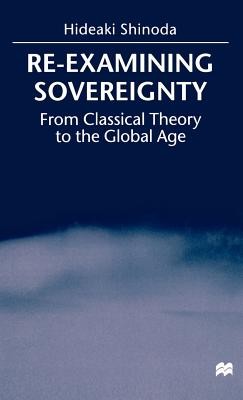
- We will send in 10–14 business days.
- Author: Na Na
- Publisher: Palgrave Macmillan
- ISBN-10: 0312230915
- ISBN-13: 9780312230913
- Format: 14 x 21.6 x 1.8 cm, kieti viršeliai
- Language: English
- SAVE -10% with code: EXTRA
Reviews
Description
This book provides a complete documentary history of the idea of sovereignty from classical theory to the global age. By examining documents on sovereignty by major as well as little-known thinkers, which show the interrelationship between political reality and the principle of sovereignty in history, the author challenges conventional understandings of sovereignty. He adopts two methodological standpoints. The 'diachronic' perspective illuminates the characteristic feature of modern sovereignty: the anthropomorphism of nations. The 'synchronic' perspective identifies nationalism and constitutionalism. The author goes on to claim that the Peace of Westphalia does not explain modern national sovereignty. Furthermore, the rise and fall of the constitutional theory of sovereignty reflected domestic as well as international political environments. He concludes that the recent transformation of the principle of sovereignty in the post-Cold War world can be understood in the context of 'new international constitutionalism'.
EXTRA 10 % discount with code: EXTRA
The promotion ends in 22d.01:34:01
The discount code is valid when purchasing from 10 €. Discounts do not stack.
- Author: Na Na
- Publisher: Palgrave Macmillan
- ISBN-10: 0312230915
- ISBN-13: 9780312230913
- Format: 14 x 21.6 x 1.8 cm, kieti viršeliai
- Language: English English
This book provides a complete documentary history of the idea of sovereignty from classical theory to the global age. By examining documents on sovereignty by major as well as little-known thinkers, which show the interrelationship between political reality and the principle of sovereignty in history, the author challenges conventional understandings of sovereignty. He adopts two methodological standpoints. The 'diachronic' perspective illuminates the characteristic feature of modern sovereignty: the anthropomorphism of nations. The 'synchronic' perspective identifies nationalism and constitutionalism. The author goes on to claim that the Peace of Westphalia does not explain modern national sovereignty. Furthermore, the rise and fall of the constitutional theory of sovereignty reflected domestic as well as international political environments. He concludes that the recent transformation of the principle of sovereignty in the post-Cold War world can be understood in the context of 'new international constitutionalism'.


Reviews